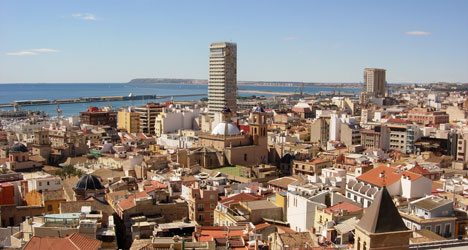In 2009, foreign residents and non-residents bought 6,357 properties, mainly for use as second homes, on the Costa Blanca.
That figure rose officially to 12,217 according to the Spanish government's Ministry of Economic Development, but data from Provia, an Alicante-based property promotion association, based on statistics from the Valencian Notary College puts the true number at 17,488.
Spanish daily La Verdad revealed that most of the foreign buyers were British.
Algerians were surprisingly revealed as the second-largest group of buyers, beating Russians into third place.
Finns and Swedes, who had all but stopped buying Alicante property a couple of years ago, have also returned to the market.
The increased take-up has been attributed to falling prices, as much as 50 percent in some cases, from agents and banks.
The average purchase price was €109,434, some €44,451 less than in 2010, a saving which has offset the increased taxes on used property.
Provia declared its confidence that the increase in purchases would continue, especially as a result of the Entrepreneurs' Law, approved last September, which offers non-EU buyers the possibility of becoming legal residents if they buy property worth more than €500,000.
Spanish Ministry figures show that Alicante is the part of the country where most properties are sold to foreigners, followed by Malaga, Barcelona, the Balearic Islands and Tenerife.
Don't miss stories about Spain, join us on Facebook and Twitter.



 Please whitelist us to continue reading.
Please whitelist us to continue reading.
Member comments